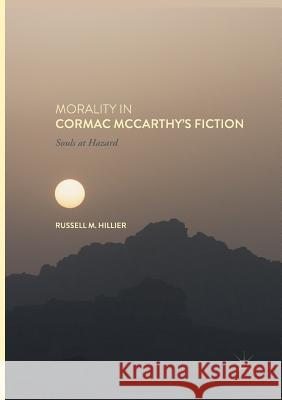Morality in Cormac McCarthy's Fiction: Souls at Hazard » książka
topmenu
Morality in Cormac McCarthy's Fiction: Souls at Hazard
ISBN-13: 9783319836270 / Angielski / Miękka / 2018 / 317 str.
Kategorie:
Kategorie BISAC:
Wydawca:
Palgrave MacMillan
Język:
Angielski
ISBN-13:
9783319836270
Rok wydania:
2018
Wydanie:
Softcover Repri
Ilość stron:
317
Waga:
0.39 kg
Wymiary:
21.01 x 14.81 x 1.75
Oprawa:
Miękka
Wolumenów:
01
Dodatkowe informacje:
Wydanie ilustrowane











